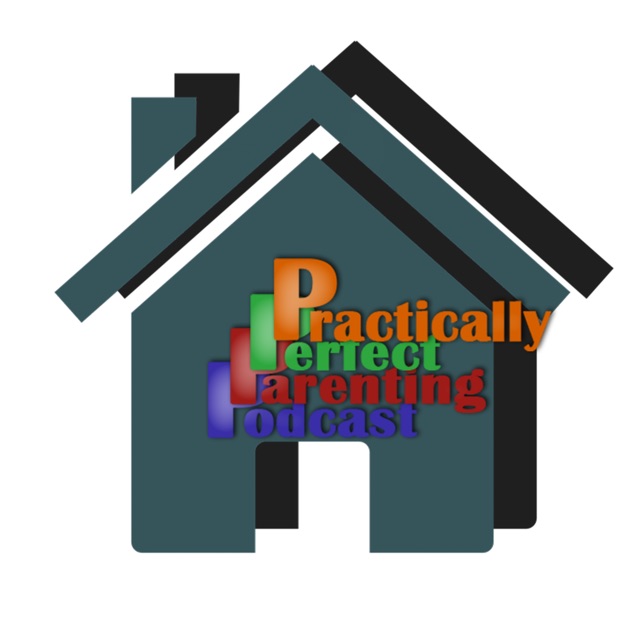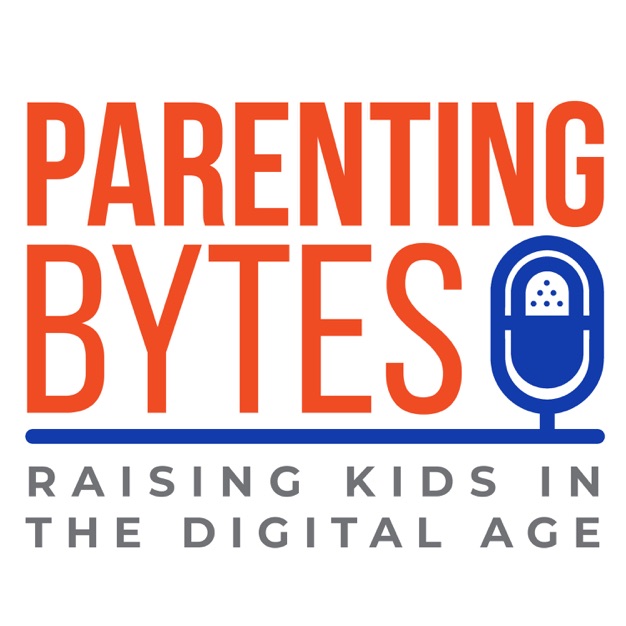
Practically Perfect Parenting Podcast
John Sommers-Flanagan, Sara Polanchek
Renowned professor, researcher, and author John Sommers-Flanagan, Ph.D., teams up with parenting, child, and intimate relationship expert Sara Polanchek, Ed.D., to bring you the Practically Perfect Parenting Podcast. Children do not come with instruction manuals, and this bi-weekly podcast tackles some of the biggest issues parents face, with humor and wit. Brought to you by The Charles Engelhard Foundation, and the National Parenting Education Network, this podcast pairs cutting edge research and proven technique, to help make you a practically perfect parent.
- 29 minutes 32 secondsInspiring Cooperation in Your Children
Photo Courtesy of Dudley Dana
In this fantastic new episode of the Practically Perfect Parenting Podcast, John tries to inspire Sara to be more cooperative. You can guess how well that works. As the usual Sara-John dynamics fly, you’ll learn about three situations that tend to elicit children’s defiance, how children’s styles may make them more or less cooperative, general principles of inspiring cooperation in children, and specific techniques you can try out with your children. You’ll also hear Sara ask John, “Is it wrong for me to stalk my children?” and Sara will share her feedback to John about whether he should brag or not. In the stunning conclusion, you’ll find out John’s uncensored thoughts on free range parenting and whether or not he recommends that you read, “Free Range Kids” by Lenore Skenazy.
The Practically Perfect Parenting Podcast (PPPP) is brought to you in part by the Charles Engelhard Foundation and the National Parenting Education Network . . . but you should be aware that the views expressed on this and every episode of the PPPP do not necessarily reflect the views of our sponsors, our listeners, or anyone other than Sara Polanchek and John Sommers-Flanagan.
The PPPP provides general educational information designed to promote positive parenting practices, but this podcast should not be considered your final source of professional advice. If you have questions about specific parenting or care taking scenarios, we recommend that you meet with a professional who can help you address the unique situations that you’re facing in your life.
24 July 2019, 8:14 pm - 24 minutes 11 secondsTeen Love
When John mentions the title of this episode of the Practically Perfect Parenting Podcast, Sara emits the sophisticated professional response of “Eewww gross.” Don’t worry. Things get better from there, because you get to hear a wide range of strategies for teaching children about healthy relationships, including Sara’s super-secret and bizarrely named strategy called “the spinach in the muffins technique.” You also get to hear several inappropriate self-disclosures, unfair accusations (as in when Sara says John just wants to reminisce about his Teen Love experiences), the Romeo and Juliet effect, and how much Sara’s teenage boys look forward to her talking with them about sexuality and intimacy. In the end, we agree that healthy relationships are the number one predictor of happiness and offer fantastic resources like the Dibble Institute https://www.dibbleinstitute.org/ and the CDC’s Teen Dating Violence webpage: https://www.cdc.gov/violenceprevention/intimatepartnerviolence/teen-dating-violence.html.
The Practically Perfect Parenting Podcast (PPPP) is brought to you in part by the Charles Engelhard Foundation and the National Parenting Education Network . . . but you should also be aware that the views expressed on this and every episode of the PPPP do not necessarily reflect the views of our sponsors, our listeners, or anyone other than Sara Polanchek and John Sommers-Flanagan. . . and, of course, sometimes we’re not even certain that we agree with what we just said.
The PPPP provides general educational information designed to promote positive parenting practices, but this podcast should not be considered a source of professional advice. If you have questions about specific parenting or caretaking scenarios, we recommend that you seek professional services with someone who can help you address the unique situations that you’re facing in your life.
22 February 2019, 12:20 am - 23 minutes 43 secondsHelping Children Deal with Fear and Anxiety
John begins this episode feeling nervous, mostly because he has unrealistic expectations about wishing to solve everyone’s anxiety problems with one podcast episode. Fortunately, because Sara is a genius, she immediately helps John feel better about his unrealistic expectations . . . although Sara also immediately makes it so John regrets calling her a genius. As the podcast continues, Sara also shows that she’s not only a genius, but that she is also a neurotic mom who has instilled bizarre fears in her children. (Actually, Sara’s children’s former fear of sharks in the University of Montana pool weren’t really her fault, but because John is writing up this summary of the podcast, John is getting back at Sara for gloating about being a genius.) At this point, rather than continue to make myself (John) sound good and my co-host (Sara) sound neurotic, I should just say that you should listen to this podcast to learn common childhood fears and strategies for helping children face their fears.
This podcast is brought to you by the Charles Engelhard Foundation and NPEN.org
18 December 2018, 3:16 am - 26 minutes 56 secondsWhy Kids Lie and What to Do About It
When it comes to boastful lying, there’s no better example than Penelope, one of Kristen Wiig’s characters on SNL. Penelope is incessantly popping up here and there, basically lying her ass off. The purpose of Penelope’s lies appear relatively straightforward. She seems to be insecure on the inside, therefore, she boasts and brags about her amazing accomplishments, constantly “one-upping” anything that anyone else says.
On second thought, maybe there’s another fictional-nonfiction character who does her one better in the lying department, but let’s not go there.
This Practically Perfect Parenting podcast on lying focuses on two key issues: (1) Why children lie . . . and (2) How parents can handle their children’s lying in ways that encourage honesty.
Sara and John review many different motivations for lying. These include, but are not limited to Penelope’s ego-boosting motivation. For parents, it can be helpful to understand the goals of your children’s lies. Obviously (or maybe not so obviously), if your children lie because they’re afraid to admit they did something wrong, then using harsh punishment with your children may make them even more afraid to tell you the truth and more inclined to lie and more likely to become even better liars.
Not surprisingly, in this episode, John tells a few lies. You’ll have to listen to see how Sara handles him.
30 November 2018, 3:01 am - 27 minutesSibling Rivalry
Two brothers, ages 7 and 9, were arguing over an imaginary cookie. In a dramatic turn of events, the older brother brought the invisible cookie to his lips, and took an imaginary bite. Immediately, the younger brother fell to his knees, crying and wailing over the loss of this imagined—yet highly coveted and presumably scrumptious—cookie. In this Practically Perfect Parenting Podcast episode, Dr. John and Dr. Sara attempt to unravel the mysteries of sibling rivalry and discuss how it can serve an important purpose. They remind listeners that, although an understandable fantasy, eliminating conflict is not a reasonable goal. Instead, by accepting a certain amount of sibling rivalry, parents can help children adopt life-long conflict management skills.
11 October 2018, 1:34 am - 24 minutes 17 secondsThe Secret...
Like the Dead Sea Scrolls, this podcast was thought to be lost forever. Then, somehow the universe returned it to us. As a lost, but freshly rediscovered relic, it includes massive secrets that are about to be unleashed on society. The good news is that you could be the first of your friends and families to hear this secret, life-enhancing message. Listen carefully. Listen closely. Listen with purpose. This podcast will transform your life.
20 July 2018, 1:11 am - 27 minutes 21 secondsThe Secret Self-Regulation Cure (Seriously, this time)
For this Practically Perfect Parenting Podcast you should just let yourself relax, let go of all expectations, and tune in. You can even practice being bored, because one part of the secret to self-regulation is that it’s all about embracing your boringness (Spoiler alert, Sara gets bored at the end). Another way of putting this, is that the deep secret to self-regulation (which John shares in this episode) is to repeatedly focus on one comforting thing that is—or becomes—boring (for you science types, that means focusing in on one comforting stimulus). Another big part of the secret to self-regulation is mindful acceptance. Of course, you probably know that mindful acceptance is from Buddhist philosophy, but the concrete application of mindful acceptance involves accepting the fact that you will always get distracted and won’t ever be able to meditate or use progressive muscle relaxation perfectly. You can only strive to be imperfectly mindful (and you shouldn’t even strive to hard for that).
If you make it through this podcast episode without falling asleep, then you might be able to answer one of the following questions:
- According to Herbert Benson, What are the four parts of the “relaxation response.”
- What’s the problem with counting sheep as a method for dealing with insomnia?
- What was the spiritual mantra that John shared?
And if you can answer one of these questions and be the first person to post it on our Facebook page, then you will win something—something in addition to having that warm, positive feeling of having been the first person to post the answer.
7 June 2018, 1:51 pm - 26 minutes 25 secondsThe Secret Self Regulation Cure
In today’s episode, Dr. Sara begins by imagining what it might be like if children, teachers, coworkers, parents, and even world leaders, were able to regulate their emotions. John is so inspired he starts to sing a song from the Beatles, "Imagine all the people living life in peace...," unfortunately (or fortunately) he does a little on-air self-check and remembers that breaking into song isn’t on the agenda. What IS on the agenda, however, is John and Sara explaining the 5 crucial steps parents can follow if they want to help their kids learn to navigate the big world of emotions.
This podcast is brought to you by the Charles Engelhard Foundation and the National Parenting Education Network.
26 March 2018, 4:19 pm - 31 minutes 30 secondsBehavior Modification: To Use or Not to Use-That is the Question
Behavior Modification: To Use or Not to Use—That is the Question!
Parenting is difficult. Parenting is also wonderful. As parents, most days we’re reminded of parenting challenges and joys. In today’s episode, Dr. Sara and Dr. John talk (and John dons his professorial persona and talks too much). Sara and John they talk about adding the crucial tool of behavior modification to your parenting toolbox. Don’t worry, we know how the idea of “behavior modification” can feel to parents; it can feel too sterile and mechanistic. The expectation isn’t for you to use behavior modification all the time, but instead to be able to use it when you need it. Even more importantly, our hope is for you to learn how to use it effectively. To help fulfill our hopes, Sara tells a story of behavior modification gone wrong and John and Sara share tips for using behavior modification effectively.
1 February 2018, 8:07 pm - 15 minutes 38 secondsOn the Road with the Practically Perfect Parenting Podcast: Q and A with Students from the University of Montana
On the Road with the Practically Perfect Parenting Podcast: Q and A with Students from the University of Montana
One day, Sara woke up tired; she was tired of always having to go to a studio to record the Practically Perfect Parenting Podcast episodes. She emailed John and Mike (the sound guy) and suggested we take the show on the road. So we did. Mike put lapel microphones on Sara and John, and set up a standing mic for 50 students in Ariel Goodman’s “Intimate and Family Relationships” class (Counseling 242). The good news is that we got some fabulous Q and A. The bad news is that most of the students were afraid to approach the microphone. Consequently, in some cases John and Sara jumped in and asked questions on behalf of the students. While listening, see if you can pick up on themes from Sara’s and John’s answers. What are Sara’s parenting struggles? What were John’s? If you listen closely, you’ll hear patterns. In the end, the students’ questions were excellent, and Sara’s and John’s answers were pretty darn good too.
This podcast is brought to you by the Charles Engelhard Foundation, and the National Parenting Education Network, Visit them at NPEN.org.
15 January 2018, 7:01 pm - Happy New Year
Happy New Year from all of us at the Practically Perfect Parenting Podcast. Have you recovered from the Holidays yet? Join us for some self care as we take a look back at your most downloaded episodes in 2017.
#1 Parenting in the Age of Trump...
#2 Why Parents Spank, and Why They Should Stop
#3 How to Listen so Parents will Talk...
#4 Technology as a Barrier and a Bridge
#5 Teens and Depression
All of these episodes can be found at http://practicallyperfectparenting.libsyn.com/
Thank you for a wonderful year! We will be back in just a few short weeks with more exciting content. Do you have a topic that needs to be addressed? We want to hear from you! Drop us a line on Facebook or email and lets get this new year started!
4 January 2018, 6:20 pm - More Episodes? Get the App
Your feedback is valuable to us. Should you encounter any bugs, glitches, lack of functionality or other problems, please email us on [email protected] or join Moon.FM Telegram Group where you can talk directly to the dev team who are happy to answer any queries.
 Chronicles of Nannya
Chronicles of Nannya
 Practically Perfect Podcast- For Nannies by Nannies!
Practically Perfect Podcast- For Nannies by Nannies!
 Parenting Roundabout
Parenting Roundabout
 Parenting Bytes
Parenting Bytes